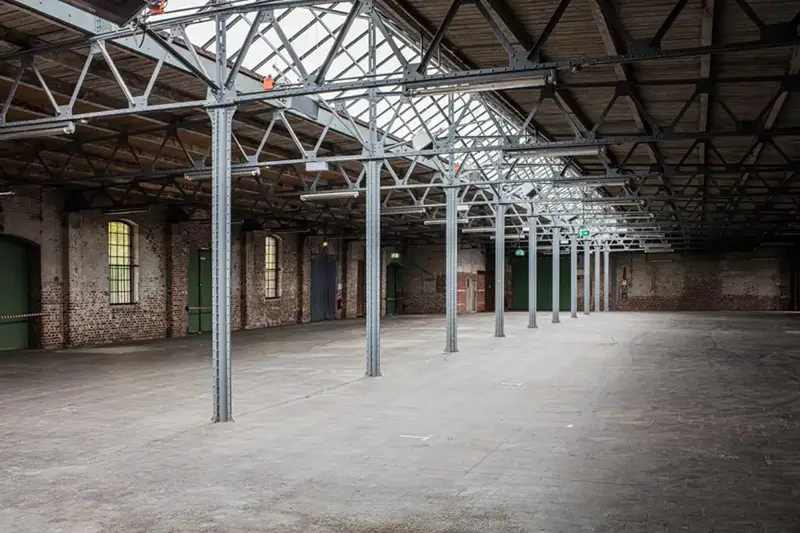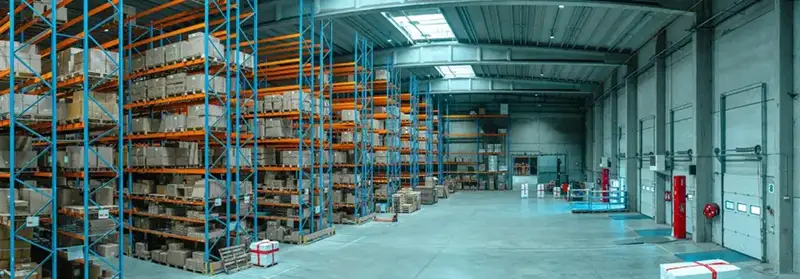Click here to get this post in PDF
Renting warehouse space can be a cost-effective solution for businesses looking for additional storage space without investing in a property. However, before leasing a small warehouse space, it’s essential to understand the costs involved and how they will impact your business.
Costs
The cost of renting a warehouse varies based on several factors, including the size and location of the building. Additionally, amenities included in the lease agreement can affect rental prices as well. Therefore, it’s essential to understand these costs and how they will impact your business before entering into any lease agreement.
A small industrial space can be an invaluable asset to your business. It’s typically more cost-effective than retail stores and can be utilized for various purposes like storing seasonal goods or unused furniture. Furthermore, it allows you to expand without having to relocate and invest in larger premises.
In addition to basic monthly rent costs, landlords typically charge extra fees for electricity, water, janitorial services and other operating costs.
One way to reduce the cost of renting a warehouse is to bargain with your landlord for better rates. Doing this will allow you to get the most for your money and may result in increased profit margins for your company.
Features
Purchasing a warehouse space can be an expensive and risky decision. If you lack the funds to invest, or believe your business volume won’t justify purchasing one, small warehouse space rent may be your best bet.
Leasing a warehouse offers many benefits, such as not having to pay any of the operating expenses associated with owning one (like property taxes and insurance). Before signing any lease agreement, however, you’ll need to decide how much per square foot you are willing to pay. You can do this by multiplying your base rental rate (which may be per month, quarterly or yearly) by your estimated operating costs.
When calculating how much a warehouse for rent will cost, you should take into account its location. This can help determine whether this location will benefit your brand or lead to customer loss. Furthermore, make sure the quality of space is taken into account as well.
A top-notch warehouse for rent should boast features like high ceilings, dock doors, drive-in doors, spacious offices and attractive landscaping. These elements can add value to your business operations and increase profitability.
Other features to consider when renting industrial space for rent include loading zones, parking, and security systems. These can make the space more efficient and secure – an essential aspect of any business.
Finding the ideal warehouse to rent requires extensive online searching. Many commercial property management companies’ websites offer multiple options with various price points and features available. You can find a Pontiac, MI small warehouse for rent that suits your needs. Be sure to determine what features you will need in your desired space in order to best suit your business.
Lease terms
Lease terms are an essential aspect of renting warehouse space. They will determine how long you have access to the space and what amount you must pay for it. Make sure you understand the lease term before signing anything so that you’re comfortable with it.
Typically, lease terms for small warehouse space rent range from three to seven years; however, you have the option to negotiate shorter or longer terms if they better suit your needs.
If you plan on expanding or downsizing soon, a short-term lease could be ideal. This will enable you to move quickly when needed and remain flexible if unexpected growth occurs or your business environment deteriorates over time.
On the other hand, you might prefer a long-term lease if you’re sure your company will remain stable over several years. While these types of agreements aren’t as flexible, they tend to work best for larger organizations with an ambitious future plan.
Before signing a lease, consult an attorney to make sure it serves your best interests. Also inquire about sublease rights and termination options. You can learn more about subleasing by clicking the link.
Termination options are invaluable rights for tenants, providing them with the option to end their leases if they no longer require the space. Nonetheless, tenants should be aware that these rights come at a significant cost to them.
Insurance
Finding the appropriate insurance for your small warehouse space can be incredibly beneficial. A well-crafted policy will safeguard you against theft, fire and natural disasters alike. Many companies provide competitively priced policies with excellent customer service as well. You can click the link: https://en.wikipedia.org/wiki/Commercial_general_liability_insurance to find out more about commercial insurance.
A reliable insurer will offer you a broad selection of options, from comprehensive workers’ compensation coverage to high-limit inventory insurance and warehouse-to-warehouse transportation protection.
Renting warehouse space has many benefits for the small business owner. You can consult with a professional to help you determine if it is the best option for you.
You may also like: 4 Areas You Must Focus On Improving Your Warehouse


